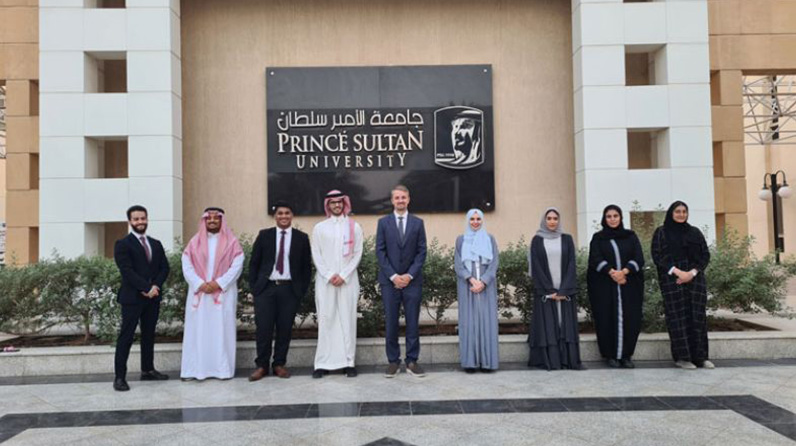Law students at Prince Sultan University have enjoyed the unique experience of moot arbitration as they acquire invaluable skills for their future legal careers
For any organisation that wants to avoid expensive and traumatic litigation or a court case, arbitration provides a valuable method of dispute resolution. Students at the College of Law at Prince Sultan University in Saudi Arabia have been gaining a unique taste of arbitration at moot competitions, competing locally, internationally and, more recently, in a virtual setting.
A number of students participated in in the Middle East moot in Bahrain in March 2018, an experience that sparked interest in the value of moot arbitration, and later that year the College of Law at PSU signed an agreement with the Saudi Center for Commercial Arbitration (SCCA), which initiated an Arabic-language competition. “The College of Law at PSU has always been interested in endorsing and encouraging students to enter competitions” says Abdulaziz Altuwaijri, dean of the College of Law at PSU. “Competitions represent an extraordinary added value in refining the skills of the student in a practical manner.”
The SCCA Arbitration Moot Competition was officially launched in PSU’s College of Law in September 2019, with Zlatan Meškić, professor of law at the university, appointed PSU’s moot coach. PSU supported the development of the moot program at the college with the provision of coaching, a strong research environment and the opportunity to participate in preparatory moots abroad.
The mock arbitrations foster numerous skills that will be crucial for students’ future legal careers: legal writing such as statements of defence, delivering convincing oral pleadings, research into national and international law, and the ability to communicate well within a team. “If I apply to any legal internship, I’ll need three key skills: research, writing and strong orality. Vis moot was the perfect experience that helped me check those boxes,” explains Dareen Abdulkareem, a senior law student at PSU. “I’ve learned how to present arguments in a very clear manner, and this was noticed by interviewers who are looking for clarity and the ability to learn quickly.”
The skills and connections forged by “mooties” during the mock arbitration process mean that they are in high demand by law firms and other institutions. Mohammed Aleissa, a PSU law student, feels that the experience helped him learn how to efficiently manage his time, among other skills that will make him more employable.
“It can be difficult to balance your personal obligations such as university work with the needs of the team. I’m happy that this is a skill I’ve developed early,” Aleissa says. “There’s a view that only senior legal professionals can take part in arbitration because you need a lot of experience, so the competition aims to introduce a younger generation to arbitration as a means of dispute resolution.”
Meškić agrees that participation in the competition is a “good entry card” for students as they consider their future careers in law. “It opens the door to scholarships, universities seek these students for their master’s, and lawyers can see them at work,” he explains. While face-to-face competitions were postponed because of the pandemic, students are still able to gain networking and collaboration skills in their connections and negotiations with other universities.
In 2020, Meškić’s teams won first place in the three main categories of the national SCCA Arbitration Moot Competition. In 2021, the SCCA competition turned international, and PSU’s male and female arbitration students gained second place awards in specific oral and written categories. Internationally, the team has reached the semi-finals of the international pre-moot in Sri Lanka. The team also gained four second-place awards in the Middle East Pre-Moot, including the MENA Chambers Excellence Award for international commercial arbitration. “This is a developing field where there are not many experts, so participating in moot arbitration makes you eligible for a promising career,” Meškić concludes. “Students who were mooties in previous years are now working in arbitration.”
See original post at Times Higher Education Website

